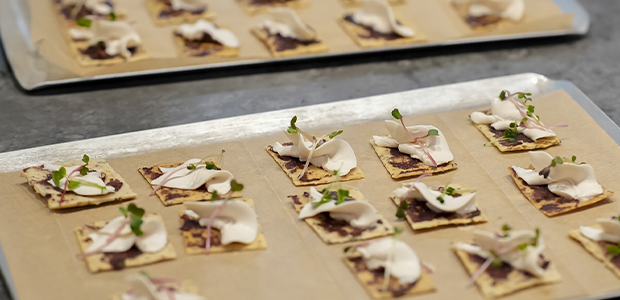
Brevel Launches Commercial Plant for Microalgae Protein Supply
Microalgae protein company Brevel has inaugurated its first commercial plant, a massive 27,000-square-foot facility poised to churn out hundreds of tons of protein powder annually.
This clean, non-GMO, and sustainable protein represents a breakthrough for the booming alternative protein market.
Located strategically in Israel's desert region, the new plant signifies a major leap for Brevel. By scaling production to industrial levels, Brevel is ready to introduce its innovative plant protein to the commercial food scene.
The facility leverages Brevel's unique method of cultivating microalgae from the chlorella family. This results in a highly nutritious ingredient with a complete amino acid profile, exceptional cost-effectiveness, and a neutral taste and color. Furthermore, Brevel's process boasts a minimal environmental impact.
The company anticipates the first products rolling off the production line by the first quarter of 2025.
Fermentation sees the light
Brevel cultivates its microalgae in indoor bioreactors via the fermentation of sugars. Unique to its technology is the simultaneous application of light and fermentation. This enables the generation of nutrient-rich microalgae in abundant yields, without any form of gene modification.
“Combining light and fermentation to produce microalgae is like putting an electric motor into a Tesla car,” explains Yonatan Golan, Brevel’s co-founder and CEO. “It may sound like a very simple straightforward task to achieve but is actually extremely complex. This was the challenge we managed to crack and lies at the core of our technology. Until now, fermentation has been confined to dark environments and is instrumental in producing the extremely high yields. However, microalgae’s natural makeup of nutrients – including protein, lipids, fibre, and pigments – depend on photosynthesis for their development and growth.”
The future is here
Brevel’s breakthrough in uniting fermentation and light into a single process results in a steady supply of a white powdered 60-70% microalgae protein concentrate. Its robust functional qualities allow for seamless applications into a full range of meat and dairy alternatives. Brevel will focus first on alternative dairy products. “Our versatile solutions can boost protein content in dairy alternative while mimicking the same sensory experience, added Golan. “We have strategised several joint-venture partnerships in the US, Europe, and Asia. The result will be construction of larger facilities to fulfill growing demands for our sustainable protein in multiple applications.”
As part of its waste-free manufacturing process, Brevel valorises all of the algae’s valuable components, making the oil and fibre byproducts available as clean-label emulsifiers and a source of food enrichment for functional foods and food supplements.
How do you like your protein?
At an inauguration event, which welcomed more than 150 attendees including investors, food-tech startups, government representatives and food manufacturers, Brevel gave tours of the new state-of-the-art facility which houses advanced bioproduction labs, spacious working environments, a modern food application lab, and the latest in quality control equipment.
The visitors enjoyed tastings of a variety of protein rich plant-based cheese analogous demonstrating Brevel’s ability to provide nutritional value without compromising flavor or appearance. “This new facility is just the beginning for Brevel,” states Ido Golan, CTO and co-founder of Brevel. “We will make a vital contribution to building a secure, resilient food value chain that will nourish future generations with a new supply line of affordable yet highly nutritious protein.”
Brevel will supply its protein to plant-based food formulators and food manufacturers worldwide, some of whom are strategic partners and investors in the company. Today’s product developers are actively seeking more neutral-tasting plant proteins as options to commonly used pea and soy proteins, which often pose flavour and texture challenges. The extracted microalgae protein is highly nutritious, has sensory appeal, and shares the same price bracket as soy and pea proteins.
Last year the company netted nearly $19 million in seed funding. The round, led by NevaTeam Partners and supported by the European Union’s EIC Fund, enabled this current phase of commercial-scale production and global outreach.

